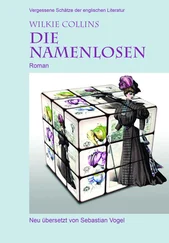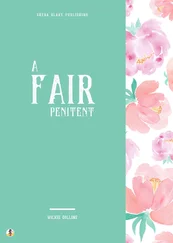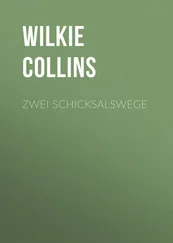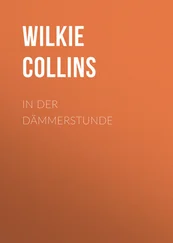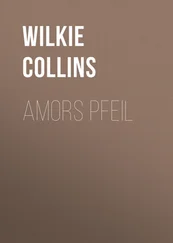Wilkie Collins - Little Novels
Здесь есть возможность читать онлайн «Wilkie Collins - Little Novels» весь текст электронной книги совершенно бесплатно (целиком полную версию без сокращений). В некоторых случаях можно слушать аудио, скачать через торрент в формате fb2 и присутствует краткое содержание. Год выпуска: 1999, Жанр: Классическая проза, на английском языке. Описание произведения, (предисловие) а так же отзывы посетителей доступны на портале библиотеки ЛибКат.
- Название:Little Novels
- Автор:
- Жанр:
- Год:1999
- ISBN:нет данных
- Рейтинг книги:5 / 5. Голосов: 1
-
Избранное:Добавить в избранное
- Отзывы:
-
Ваша оценка:
- 100
- 1
- 2
- 3
- 4
- 5
Little Novels: краткое содержание, описание и аннотация
Предлагаем к чтению аннотацию, описание, краткое содержание или предисловие (зависит от того, что написал сам автор книги «Little Novels»). Если вы не нашли необходимую информацию о книге — напишите в комментариях, мы постараемся отыскать её.
Little Novels — читать онлайн бесплатно полную книгу (весь текст) целиком
Ниже представлен текст книги, разбитый по страницам. Система сохранения места последней прочитанной страницы, позволяет с удобством читать онлайн бесплатно книгу «Little Novels», без необходимости каждый раз заново искать на чём Вы остановились. Поставьте закладку, и сможете в любой момент перейти на страницу, на которой закончили чтение.
Интервал:
Закладка:
For seven sad months our dear sufferer lingered. I have only one remembrance to comfort me; my mother’s last kiss was mine—she died peacefully with her head on my bosom.
I was nearly nineteen years old before I had sufficiently rallied my courage to be able to think seriously of myself and my prospects.
At that age one does not willingly submit one’s self for the first time to the authority of a governess. Having my aunt for a companion and protectress, I proposed to engage my own masters and to superintend my own education.
My plans failed to meet with the approval of the head of the family. He declared (most unjustly, as the event proved) that my aunt was not a fit person to take care of me. She had passed all the later years of her life in retirement. A good creature, he admitted, in her own way, but she had no knowledge of the world, and no firmness of character. The right person to act as my chaperon, and to superintend my education, was the high-minded and accomplished woman who had taught his own daughters.
I declined, with all needful gratitude and respect, to take his advice. The bare idea of living with a stranger so soon after my mother’s death revolted me. Besides, I liked my aunt, and my aunt liked me. Being made acquainted with my decision, the head of the family cast me off, exactly as he had cast off my mother before me.
So I lived in retirement with my good aunt, and studied industriously to improve my mind until my twenty-first birthday came. I was now an heiress, privileged to think and act for myself. My aunt kissed me tenderly. We talked of my poor mother, and we cried in each other’s arms on the memorable day that made a wealthy woman of me. In a little time more, other troubles than vain regrets for the dead were to try me, and other tears were to fill my eyes than the tears which I had given to the memory of my mother.
II.
I MAY now return to my visit, in June, 1817, to the healing springs at Maplesworth.
This famous inland watering-place was only between nine and ten miles from my new home called Nettlegrove Hall. I had been feeling weak and out of spirits for some months, and our medical adviser recommended change of scene and a trial of the waters at Maplesworth. My aunt and I established ourselves in comfortable apartments, with a letter of introduction to the chief doctor in the place. This otherwise harmless and worthy man proved, strangely enough, to be the innocent cause of the trials and troubles which beset me at the outset of my new life.
The day after we had presented our letter of introduction, we met the doctor on the public walk. He was accompanied by two strangers, both young men, and both (so far as my ignorant opinion went) persons of some distinction, judging by their dress and manners. The doctor said a few kind words to us, and rejoined his two companions. Both the gentlemen looked at me, and both took off their hats as my aunt and I proceeded on our walk.
I own I thought occasionally of the well-bred strangers during the rest of the day, especially of the shortest of the two, who was also the handsomest of the two to my thinking. If this confession seems rather a bold one, remember, if you please, that I had never been taught to conceal my feelings at Saint Domingo, and that the events which followed our arrival in England had kept me completely secluded from the society of other young ladies of my age.
The next day, while I was drinking my glass of healing water (extremely nasty water, by the way) the doctor joined us.
While he was asking me about my health, the two strangers made their appearance again, and took off their hats again. They both looked expectantly at the doctor, and the doctor (in performance of a promise which he had already made, as I privately suspected) formally introduced them to my aunt and to me. First (I put the handsomest man first) Captain Arthur Stanwick, of the army, home from India on leave, and staying at Maplesworth to take the waters; secondly, Mr. Lionel Varleigh, of Boston, in America, visiting England, after traveling all over Europe, and stopping at Maplesworth to keep company with his friend the Captain.
On their introduction, the two gentlemen, observing, no doubt, that I was a little shy, forbore delicately from pressing their society on us.
Captain Stanwick, with a beautiful smile, and with teeth worthy of the smile, stroked his whiskers, and asked me if I had found any benefit from taking the waters. He afterward spoke in great praise of the charming scenery in the neighborhood of Maplesworth, and then, turning away, addressed his next words to my aunt. Mr. Varleigh took his place. Speaking with perfect gravity, and with no whiskers to stroke, he said:
“I have once tried the waters here out of curiosity. I can sympathize, miss, with the expression which I observed on your face when you emptied your glass just now. Permit me to offer you something nice to take the taste of the waters out of your mouth.” He produced from his pocket a beautiful little box filled with sugar-plums. “I bought it in Paris,” h e explained. “Having lived a good deal in France, I have got into a habit of making little presents of this sort to ladies and children. I wouldn’t let the doctor see it, miss, if I were you. He has the usual medical prejudice against sugar-plums.” With that quaint warning, he, too, made his bow and discreetly withdrew.
Thinking it over afterward, I acknowledged to myself that the English Captain—although he was the handsomest man of the two, and possessed the smoothest manners—had failed, nevertheless, to overcome my shyness. The American traveler’s unaffected sincerity and good-humor, on the other hand, set me quite at my ease. I could look at him and thank him, and feel amused at his sympathy with the grimace I had made, after swallowing the ill-flavored waters. And yet, while I lay awake at night, wondering whether we should meet our new acquaintances on the next day, it was the English Captain that I most wanted to see again, and not the American traveler! At the time, I set this down to nothing more important than my own perversity. Ah, dear! dear! I know better than that now.
The next morning brought the doctor to our hotel on a special visit to my aunt. He invented a pretext for sending me into the next room, which was so plainly a clumsy excuse that my curiosity was aroused. I gratified my curiosity. Must I make my confession plainer still? Must I acknowledge that I was mean enough to listen on the other side of the door?
I heard my dear innocent old aunt say: “Doctor! I hope you don’t see anything alarming in the state of Bertha’s health.”
The doctor burst out laughing. “My dear madam! there is nothing in the state of the young lady’s health which need cause the smallest anxiety to you or to me. The object of my visit is to justify myself for presenting those two gentlemen to you yesterday. They are both greatly struck by Miss Bertha’s beauty, and they both urgently entreated me to introduce them. Such introductions, I need hardly say, are marked exceptions to my general rule. In ninety-nine cases out of a hundred I should have said No. In the cases of Captain Stanwick and Mr. Varleigh, however, I saw no reason to hesitate. Permit me to assure you that I am not intruding on your notice two fortune-hunting adventurers. They are both men of position and men of property. The family of the Stanwicks has been well known to me for years; and Mr. Varleigh brought me a letter from my oldest living friend, answering for him as a gentleman in the highest sense of the word. He is the wealthiest man of the two; and it speaks volumes for him, in my opinion, that he has preserved his simplicity of character after a long residence in such places as Paris and Vienna. Captain Stanwick has more polish and ease of manner, but, looking under the surface, I rather fancy there may be something a little impetuous and domineering in his temper. However, we all have our faults. I can only say, for both these young friends of mine, that you need feel no scruple about admitting them to your intimacy, if they happen to please you—and your niece. Having now, I hope, removed any doubts which may have troubled you, pray recall Miss Bertha. I am afraid I have interrupted you in discussing your plans for the day.”
Читать дальшеИнтервал:
Закладка:
Похожие книги на «Little Novels»
Представляем Вашему вниманию похожие книги на «Little Novels» списком для выбора. Мы отобрали схожую по названию и смыслу литературу в надежде предоставить читателям больше вариантов отыскать новые, интересные, ещё непрочитанные произведения.
Обсуждение, отзывы о книге «Little Novels» и просто собственные мнения читателей. Оставьте ваши комментарии, напишите, что Вы думаете о произведении, его смысле или главных героях. Укажите что конкретно понравилось, а что нет, и почему Вы так считаете.


